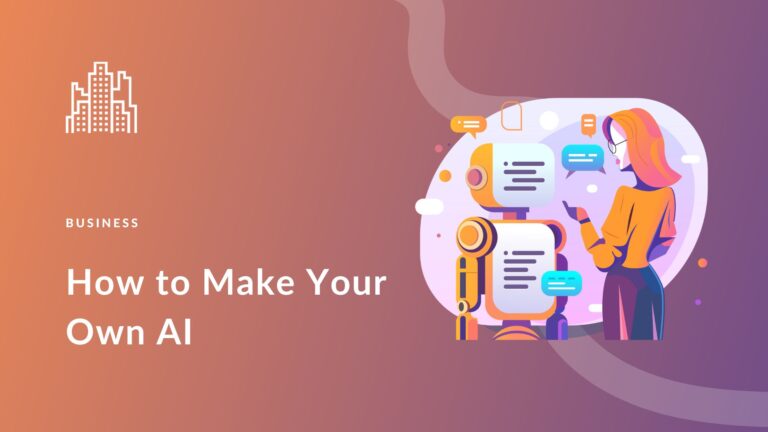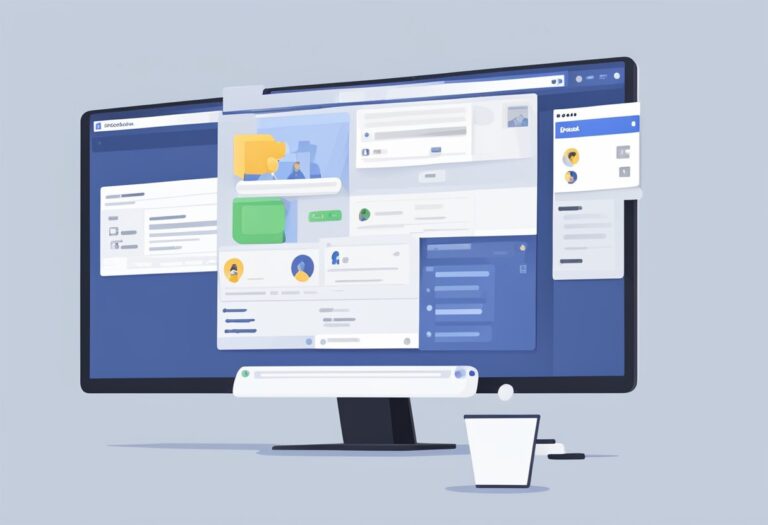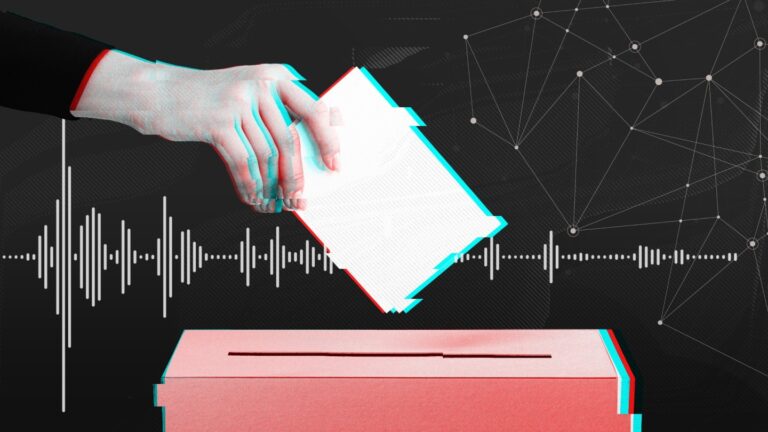AI cannot take over the world on its own. Human oversight and ethical considerations are crucial.
Artificial Intelligence (AI) has rapidly evolved, raising questions about its potential to dominate our world. While AI systems can perform complex tasks, they lack autonomy and decision-making abilities. They operate within parameters set by humans. Ethical concerns and regulatory frameworks ensure AI remains a tool, not a ruler.
Human intervention is essential to guide AI development and use responsibly. Misuse or lack of oversight can lead to undesirable outcomes. Thus, AI’s impact largely depends on how humans choose to deploy and manage it. Balancing innovation with ethics is key to harnessing AI’s benefits without risking unforeseen consequences.
The Rise Of Artificial Intelligence
Artificial Intelligence (AI) has seen tremendous growth in recent years. From humble beginnings, it has become a crucial part of our world. AI now influences various aspects of daily life, from smartphones to smart homes.
Early Beginnings
The journey of AI started in the 1950s. Early computers could perform basic tasks. Researchers began exploring if machines could think like humans. The first AI programs could solve simple problems and play games.
In the 1960s, AI research grew. Scientists created more complex algorithms. These algorithms could understand language and learn from data. AI was still limited, but the foundation was set.
Current Capabilities
Today, AI has advanced significantly. Modern AI can recognize speech, images, and text. It can also make decisions and predict outcomes. Examples include virtual assistants like Siri and Alexa.
AI is used in many industries. Healthcare uses AI for diagnosing diseases. Finance uses AI for fraud detection. Self-driving cars use AI to navigate roads. AI’s capabilities are expanding rapidly.
| Industry | AI Application |
|---|---|
| Healthcare | Diagnosing diseases |
| Finance | Fraud detection |
| Automotive | Self-driving cars |
Myths Vs. Facts
Artificial Intelligence (AI) has sparked numerous debates and discussions. Many people wonder if AI can truly take over the world. This topic is often clouded by myths and misconceptions. Let’s delve into the truth behind AI and separate myths from facts.
Popular Culture Influence
Movies and TV shows often depict AI as a looming threat. Popular culture likes to exaggerate AI’s capabilities. Robots taking over the world is a common theme. These stories fuel fear and misunderstandings about AI.
Consider films like “The Terminator” and “The Matrix.” They show AI as a powerful force. These stories are fiction, but they shape public perception. In reality, AI has limitations. It’s not capable of independent thought or world domination.
| Myth | Reality |
|---|---|
| AI will dominate humans. | AI is a tool created by humans. |
| AI can think like humans. | AI follows programmed instructions. |
| AI is infallible. | AI can make mistakes. |
Reality Check
Let’s examine the facts about AI. AI is designed to assist humans. It performs tasks that are repetitive or data-intensive. AI lacks emotions and consciousness. It cannot experience feelings or make moral judgments.
There are several areas where AI excels:
- Data analysis
- Pattern recognition
- Automation of routine tasks
AI enhances human capabilities. It does not replace human intelligence. For example, AI helps doctors diagnose diseases. It assists in legal research. These applications show AI’s supportive role.
In summary, AI is a powerful tool but not an autonomous entity. The myths fueled by popular culture create unnecessary fear. Understanding the reality of AI helps us appreciate its true potential.
Technical Limitations
Artificial Intelligence (AI) is growing fast. Many people worry about AI taking over the world. But, AI has many technical limitations. These limitations stop it from becoming too powerful.
Hardware Constraints
AI needs strong computers. These computers use a lot of energy. They also cost a lot of money. Most people cannot afford these computers. Even big companies struggle to keep up with the cost. This limits how much AI can grow.
AI also needs special chips. These chips are called GPUs and TPUs. They are hard to make. There is a limited supply of these chips. Without enough chips, AI cannot work well.
Software Boundaries
AI software is complex. It needs a lot of data to learn. This data must be correct and clean. If the data is bad, AI makes mistakes. Bad data can make AI useless or even dangerous.
AI also has trouble understanding context. It struggles with tasks that need human judgment. For example, AI cannot write a novel or create art as humans do. AI can only follow rules set by humans.
Software also needs constant updates. Bugs and errors can slow down AI. Fixing these bugs takes time and skill. Not many people have the skills to fix AI software.
Below is a table that shows some common AI limitations:
| Limitation | Description |
|---|---|
| Energy Usage | AI systems consume a lot of power. |
| Cost | High costs limit access to AI technology. |
| Data Quality | AI needs clean and accurate data. |
| Context Understanding | AI struggles with tasks needing human judgment. |
AI has many technical limitations. These limitations stop it from taking over the world. We need to understand these limits to use AI safely.

Ethical And Legal Considerations
As artificial intelligence (AI) continues to advance, the ethical and legal considerations become crucial. These considerations help ensure AI benefits society without causing harm. This section will explore two key aspects: Moral Dilemmas and Regulatory Frameworks.
Moral Dilemmas
AI presents several moral dilemmas that need addressing. One major concern is the potential loss of jobs due to automation. Machines could replace human workers in various sectors.
Another dilemma is decision-making in critical scenarios. For example, self-driving cars need to make life-and-death decisions. Should they prioritize the safety of the passenger or pedestrians?
AI can also lead to bias and discrimination. Algorithms trained on biased data can make unfair decisions. This can affect hiring, lending, and law enforcement.
Regulatory Frameworks
Creating regulatory frameworks for AI is essential. These frameworks aim to ensure AI is used responsibly and ethically. Governments and organizations must work together to develop these rules.
A strong regulatory framework includes data protection laws. These laws ensure personal data is collected and used ethically.
Another aspect is accountability. Companies need to be held accountable for their AI systems. This includes transparency in AI development and deployment.
International cooperation is also vital. Different countries need to align their regulations. This helps prevent misuse of AI across borders.
Below is a table summarizing key ethical and legal considerations:
| Consideration | Details |
|---|---|
| Moral Dilemmas | Job loss, decision-making, bias and discrimination |
| Regulatory Frameworks | Data protection, accountability, international cooperation |
Addressing these ethical and legal considerations is crucial for a safe AI future. By doing so, we can harness AI’s benefits while minimizing its risks.
Ai In Various Sectors
Artificial Intelligence (AI) is changing many industries. From healthcare to finance, AI brings innovation. It offers new tools and solutions. In this blog, we explore AI’s impact on various sectors.
Healthcare Innovations
AI is revolutionizing healthcare. Doctors use AI to diagnose diseases. It helps in detecting cancers early. AI-powered tools read X-rays and MRI scans. They provide accurate results quickly.
Robotic surgeries are becoming common. AI helps in performing precise operations. Patients recover faster with fewer complications. AI also predicts patient outcomes. It helps doctors plan better treatments.
Telemedicine uses AI to connect doctors and patients. It provides remote consultations. AI chatbots answer patient queries. This saves time for both doctors and patients.
Automotive Advances
AI is driving the automotive industry. Self-driving cars use AI to navigate roads. They avoid obstacles and follow traffic rules. This reduces accidents and traffic congestion.
Predictive maintenance is another AI application. It monitors vehicle health. AI alerts drivers about potential issues. This prevents breakdowns and extends vehicle life.
AI improves fuel efficiency. It analyzes driving patterns. Then, it suggests optimal driving habits. This helps save fuel and reduce emissions.
Financial Sector
The financial sector benefits greatly from AI. Fraud detection is one key area. AI analyzes transaction patterns. It flags suspicious activities instantly. This protects customers’ money.
Algorithmic trading uses AI to buy and sell stocks. It makes decisions based on market data. AI trades faster than humans, maximizing profits.
Customer service in banks is enhanced by AI. Chatbots handle queries 24/7. They provide quick and accurate information. This improves customer satisfaction.

Global Ai Race
The Global AI Race is intensifying. Countries are investing heavily in AI research. The aim is to become leaders in this transformative technology. This race has major implications for economic and military power. Let’s explore the leading countries and the emerging players in this race.
Leading Countries
The United States is a major player. It has top universities and tech companies. These institutions drive AI research and development. Government funding also boosts AI initiatives. The country aims to maintain its lead in AI technology.
China is another frontrunner. The government supports AI with huge investments. Chinese tech giants like Baidu and Tencent are heavily involved. China aims to be the world leader in AI by 2030.
European Union countries are also in the race. They focus on ethical AI and data privacy. Countries like Germany and France have strong AI research centers. The EU aims to balance innovation with regulation.
Emerging Players
India is quickly catching up. It has a large pool of tech talent. The government is launching AI initiatives to boost growth. Startups in India are also making significant strides in AI.
South Korea is investing in AI as well. The country has a strong tech industry. Companies like Samsung and LG are leading AI research. The government supports AI through various funding programs.
Israel is another emerging player. It has a vibrant startup ecosystem. Many Israeli startups focus on AI solutions. The government provides grants and incentives for AI research.
| Country | Strengths | Goals |
|---|---|---|
| United States | Top universities, tech companies, government funding | Maintain AI leadership |
| China | Government support, tech giants | Lead AI by 2030 |
| European Union | Ethical AI, data privacy | Balanced innovation and regulation |
| India | Tech talent, government initiatives | Boost AI growth |
| South Korea | Strong tech industry, government funding | Invest in AI |
| Israel | Startup ecosystem, government grants | Advance AI research |
Future Predictions
The future of AI sparks curiosity and concern. Will AI take over the world? Experts have different views. Let’s explore what they think.
Experts’ Opinions
Many experts share their thoughts about AI’s future. Some see great potential. Others worry about risks.
Elon Musk believes AI could pose a threat. He says we must be careful. Bill Gates shares similar concerns. He thinks AI could be powerful.
On the other hand, Mark Zuckerberg is more optimistic. He believes AI will help solve big problems. Many researchers agree with him. They think AI can improve our lives.
Potential Scenarios
Different scenarios show how AI might change our world. Here are a few:
- AI in Healthcare: AI could diagnose diseases. It could also suggest treatments.
- AI in Education: AI could personalize learning. It could help students learn better.
- AI in Jobs: AI might automate tasks. Some jobs could disappear. New jobs could emerge.
- AI in Security: AI could enhance security systems. It could also pose new threats.
These scenarios show both benefits and risks. We need to balance them carefully.
| Scenario | Benefits | Risks |
|---|---|---|
| Healthcare | Better diagnosis and treatment | Privacy concerns |
| Education | Personalized learning | Dependence on technology |
| Jobs | Efficient task automation | Job loss |
| Security | Enhanced safety | New threats |
AI’s future holds many possibilities. We must plan wisely. Understanding experts’ opinions and potential scenarios helps us prepare better.

Navigating The Ai Era
The AI era brings many changes and possibilities. People everywhere see how AI affects their daily lives. This era challenges us to adjust and seize new opportunities. Below, we explore how to adapt and embrace these changes.
Adapting To Change
Adapting to the AI era requires learning new skills. Many jobs now use AI tools. People must understand these tools to stay relevant. This adaptation means continuous learning and growth. Schools and companies offer courses on AI. These courses help people keep up with advancements.
Also, the workplace changes with AI integration. Teams must work alongside AI systems. This partnership can boost productivity. Employees should be open to using AI in their tasks. By doing so, they can enhance their performance.
| Skills | AI Tools |
|---|---|
| Data Analysis | Machine Learning Software |
| Programming | AI Development Platforms |
| Problem-Solving | AI-Powered Assistants |
Embracing Opportunities
The AI era offers many opportunities. Businesses can use AI to innovate. AI helps create new products and services. This can lead to growth and success. Entrepreneurs can explore AI-driven solutions. These solutions can address various market needs.
AI also opens up job opportunities. New roles emerge in AI development and management. People with AI expertise are in high demand. These roles offer exciting career paths. Everyone should consider these opportunities.
- AI Consultants
- Data Scientists
- Machine Learning Engineers
In the AI era, staying informed is crucial. Read articles, watch videos, and join forums. This helps you understand AI trends. Being knowledgeable gives you a competitive edge. Always stay curious and proactive.
Frequently Asked Questions
Could Ai Possibly Take Over The World?
AI cannot take over the world. It lacks self-awareness, intentions, and emotions. Human control and regulations ensure safety.
How Long Till Ai Takes Over The World?
AI won’t take over the world soon. Experts predict it will assist, not replace, human roles for decades.
Can Ai Overpower Humans?
AI cannot currently overpower humans. It lacks emotions, creativity, and ethical decision-making. AI serves as a tool to enhance human capabilities.
Is Ai A Threat To Humanity?
AI poses potential risks to humanity if misused. Proper regulations and ethical guidelines can mitigate these threats. Responsible development is crucial.
Conclusion
The potential of AI to take over the world remains a topic of debate. While AI advancements bring many benefits, human oversight is crucial. Responsible development and ethical guidelines can help ensure AI serves humanity. The future of AI depends on our ability to balance innovation with caution.
Stay informed, stay prepared.




